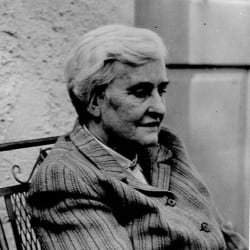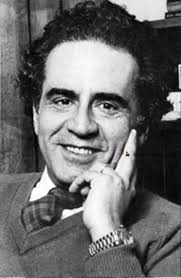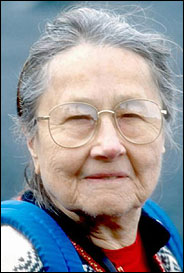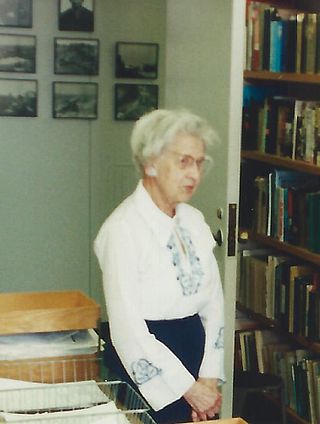Related Research Articles

José Miguel Insulza Salinas is a Chilean politician, lawyer, and academic serving as a senator for the Arica y Parinacota Region since 2018. He previously served as Minister of Foreign Affairs from 1994 to 1999 and Minister Secretary-General of the Presidency from 1999 to 2000 under president Eduardo Frei Ruiz-Tagle, as Minister of the Interior from 2000 to 2005 under president Ricardo Lagos, and as Secretary General of the Organization of American States from 2005 to 2015.

Lily Ross Taylor was an American academic and author, who in 1917 became the first female Fellow of the American Academy in Rome.

Clark Richard McCauley is an American social psychologist who is research professor of Psychology and co-director of the Solomon Asch Center for Study of Ethnopolitical Conflict at Bryn Mawr College.
Latin American studies (LAS) is an academic and research field associated with the study of Latin America. The interdisciplinary study is a subfield of area studies, and can be composed of numerous disciplines such as economics, sociology, history, international relations, political science, geography, cultural studies, gender studies, and literature.

Guillermo Alberto O'Donnell Ure was a prominent Argentine political scientist who specialized in comparative politics and Latin American politics. He spent most of his career working in Argentina and the United States, and who made lasting contributions to theorizing on authoritarianism and democratization, democracy and the state, and the politics of Latin America. His brother is Pacho O'Donnell.

Paul Nordoff was an American composer and music therapist, anthroposophist and initiator of the Nordoff-Robbins method of music therapy. His music is generally tonal and neo-Romantic in style.
The Latin American Studies Association (LASA) is the largest association for scholars of Latin American studies. Founded in 1966, it has over 12,000 members, 45 percent of whom reside outside the United States, LASA brings together experts on Latin America from all disciplines and diverse occupational endeavors, across the globe.
The Kalman H. Silvert Award was created in honor of the first president of the Latin American Studies Association. Given every 18 months, the Silvert Award "recognizes senior members of the profession who have made distinguished lifetime contributions to the study of Latin America."
Parliamentary elections were held in Guatemala for half the seats in Congress between 16 and 18 January 1953. The Revolutionary Action Party won a plurality of seats.
The National Integrity Party is a former political party in Guatemala. It was a "personalistic Arbenzista party" founded in Quezaltenango in 1949 with the goal of countering the opposition Independent Anti-Communist Party of the West, which was active in the same region. In 1952 the party merged with the other non-Communist parties supporting the Árbenz presidency to form the Party of the Guatemalan Revolution.

Greg Grandin is an American historian and author. He is a professor of history at Yale University. He previously taught at New York University.

Katharine Elizabeth McBride was an American academic in the fields of psychology and neuropsychology. She served as the fourth president of Bryn Mawr College from 1942 until 1970.

Frederica ("Freddy") Annis Lopez de Leo de Laguna was an American ethnologist, anthropologist, and archaeologist influential for her work on Paleoindian and Alaska Native art and archaeology in the American northwest and Alaska.

Annette May Baker Fox was an American international relations scholar, who spent much of her career at Columbia University's Institute of War and Peace Studies. She was a pioneer in the academic study of small powers and middle powers and the books and articles she wrote on that subject are highly regarded in the field. She was director of the institute's Canadian Studies Program from 1977 to 1984.

Manuel Antonio Garretón is a Chilean sociologist, political scientist and essayist. He received the National Prize for Humanities and Social Sciences in 2007 for his lifetime contribution to the field.
The Middle American Research Institute was established at Tulane University in 1924.
Ellen Deborah Ellis was an American Professor of history and political science. She founded the political science department at Mount Holyoke College and was named its first chairman.
Marysa Navarro Aranguren is a Spanish-American historian specializing in the history of feminism, the history of Latin American women, and the history of Latin America. She occupies a prominent role as a promoter and activist in the areas of women's studies and women's history. Navarro is an expert on the figure of Eva Perón, having published her biography, and having written articles about her. Navarro lives in the United States, and has dual citizenship, Spanish and U.S.
Gilbert M. Joseph is an American scholar and writer. He received his doctorate from Yale University in Latin American history in 1978, where he is presently a Farnam Professor Emeritus of History and International Studies. He has been the recipient of numerous awards, including the Sturgis Leavitt Best Article Prize (1981,1987), the Tanner Award for Inspirational Teaching of Undergraduates at the University of North Carolina, Chapel Hill (1980), and the Harwood F.Byrnes/Richard B. Sewall Prize for Teaching Excellence at Yale University (2017). Joseph presided over the Latin American Studies Association (LASA) from 2015 to 2016.

Latin American Perspectives is a peer-reviewed academic journal associated with the University of California, Riverside that focuses on Latin American studies regarding capitalism, imperialism, socialism and their relation to political economy.
References
- ↑ Clarence L. Mohr; Joseph E. Gordon (1 March 2001). Tulane: The Emergence of a Modern University, 1945--1980. LSU Press. p. 126. ISBN 978-0-8071-2553-3.
- ↑ Stanley Robert Ross; State University of New York at Stony Brook (1970). Latin America in Transition: Problems in Training and Research. SUNY Press. p. 147. ISBN 978-0-87395-068-8.
- ↑ "Silvert, Kalman H." Pennsylvania Centre for the Book. Archived from the original on 23 October 2016. Retrieved 31 July 2016.
- ↑ Kalman H. Silvert obituary written in 2007 by Jennifer Folk, http://pabook2.libraries.psu.edu/palitmap/bios/Silvert__Kalman.html Archived 2016-10-23 at the Wayback Machine accessed 30 July 2016.
- ↑ George Goodman, Jr. “Kalman H. Silvert, NYU Professor: specialist on Latin America Dies of Heart Attack at 55.” New York Times, June 17, 1976, p. 38 nytimes.com/mem/archive/pdf?res=9504E5D8173EE334BC4E52DFB066838D669EDE accessed 30 July 2016.
- ↑ Richard M. Morse, “Kalman H. Silvert (1921-1976): A Reminiscence.” The Hispanic American Historical Review , vol. 57, No. 3 (August 1977), pp. 504-510.
- ↑ Howard F. Cline, "The Latin American Studies Association: A Summary Survey with Appendix," Latin American Research Review , Vol. 2. No. 1 (Autumn 1966), pp. 57-79.
- ↑ Morse, “Kalman H. Silvert”, p. 506.
- ↑ Goodman, “Kalman H. Silvert”
- ↑ Morse, “Kalman H. Silvert’’, pp. 507-08.